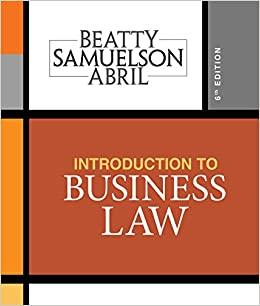Question
1. Discover the scope of finance functions. 2. List the objectives of financial management. 3. Compare profit maximization and wealth maximization. 4. List out the
1. Discover the scope of finance functions.
2. List the objectives of financial management.
3. Compare profit maximization and wealth maximization.
4. List out the characteristics of profit maximization
Residents of the town of Smithfield like to consume hams, but each ham requires 10 people to produce it and takes a month. If the town has a total of 100 people, what is the maximum amount of ham the residents can consume in a month?
3.A consultant works for $200 per hour. She likes to eat vegetables, but is not very good at growing them. Why does it make more economic sense for her to spend her time at the consulting job and shop for her vegetables?
4.A computer systems engineer could paint his house, but it makes more sense for him to hire a painter to do it. Explain why.
5.What would be another example of a "system" in the real world that could serve as a metaphor for micro and macroeconomics?
6.Suppose we extend the circular flow model to add imports and exports. Copy the circular flow diagram onto a sheet of paper and then add a foreign country as a third agent. Draw a rough sketch of the flows of imports, exports, and the payments for each on your diagram.
7.What is an example of a problem in the world today, not mentioned in the chapter, that has an economic dimension?
8.The chapter definesprivate enterpriseas a characteristic of market-oriented economies. What wouldpublic enterprisebe?Hint: It is a characteristic of command economies.
9.Why might Belgium, France, Italy, and Sweden have a higher export to GDP ratio than the United States?
Table 9.4shows the fruit prices that the typical college student purchased from 2001 to 2004. What is the amount spent each year on the "basket" of fruit with the quantities shown in column 2?
ItemsQty(2001) Price(2001) Amount Spent(2002) Price(2002) Amount Spent(2003) Price(2003) Amount Spent(2004) Price(2004) Amount SpentApples10$0.50
$0.75
$0.85
$0.88
Bananas12$0.20
$0.25
$0.25
$0.29
Grapes2$0.65
$0.70
$0.90
$0.95
Raspberries1$2.00
$1.90
$2.05
$2.13$2.13Total
Table9.4
2.Construct the price index for a "fruit basket" in each year using 2003 as the base year.
3.Compute the inflation rate for fruit prices from 2001 to 2004r.
Step by Step Solution
There are 3 Steps involved in it
Step: 1

Get Instant Access to Expert-Tailored Solutions
See step-by-step solutions with expert insights and AI powered tools for academic success
Step: 2

Step: 3

Ace Your Homework with AI
Get the answers you need in no time with our AI-driven, step-by-step assistance
Get Started


